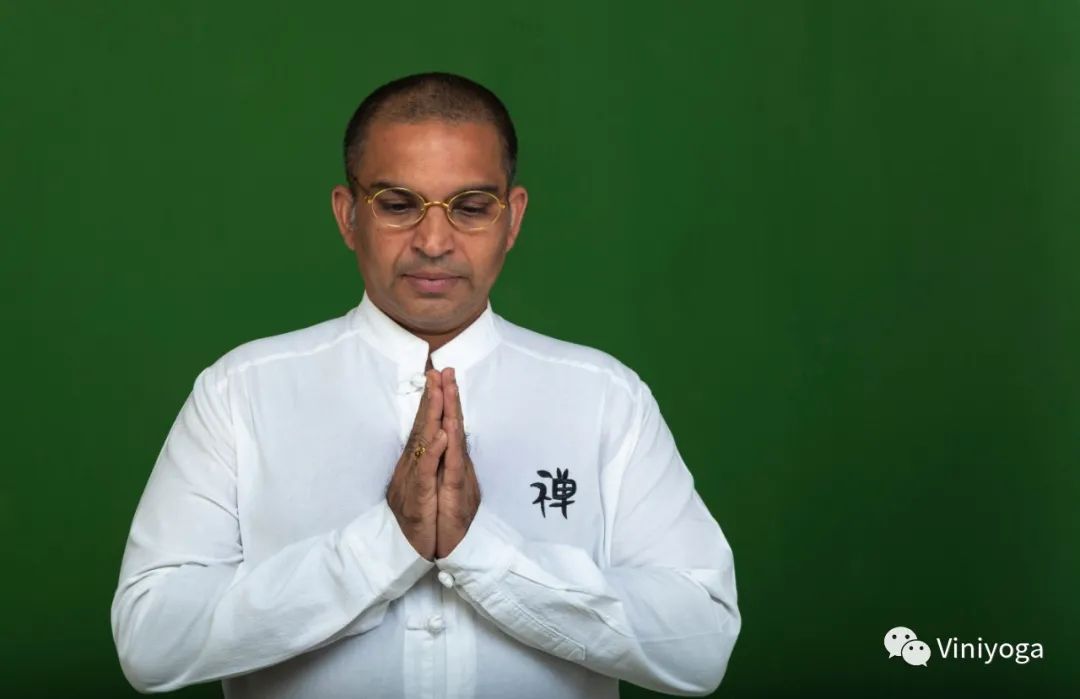What is Yoga? Many people will tell you that yoga is not the place on the yoga mat.

Yoga is everywhere.

It is reflected in every place and moment of your life.

Yoga is a practical philosophy.

Like a guru, it leads us to see the reality of the world and to the essence of life The following is the text version of the audio —— Interview editor by Zhang Ying — 1q: when it comes to the history of yoga, we have to talk about six philosophical systems.

What are the fundamental differences between these six systems? What is the relationship and difference between number theory school and yoga school? Dr.

Kausthub Desikachar: that’s a great question! Indian philosophy is very broad and profound, and we are also very grateful.
We can interpret the essence of our life not only from a system, including how to extricate ourselves from suffering and how to obtain ultimate freedom.
There are different ways and angles to answer these questions in Indian philosophy, including six schools, which are called the six Vedic schools.
There are many similar topics studied by schools in Indian philosophy.
These six university schools are called satvaidikadarsana and are regarded as the six most important philosophical schools in Indian philosophy.
The ultimate goal of these six schools is the same, which is to get relief from suffering, or called self realization or self realization, which is the basic goal of these six traditional schools.
However, they use different methods.
When we look at these different systems, we will find the differences.
The two schools mentioned in the question, yoga school and number theory school, are very similar, but there are also many subtle differences.
The similarity between yoga school and number theory school is that both believe that the purpose of material evolution is to awaken awareness and finally realize their mission.
The difference between the two is that yoga school pays attention to isvara, that is, the existence of divinity, but there is no discussion on divinity in number theory school, which is the most fundamental difference between the two.
There is also a correlation between the two, but there is also a difference between them.
The number theory school focuses on the ideological level, which is called Jnana Marga, that is, the road to knowledge, so the number theory school can be called the theoretical part; Yoga focuses on the practical level, which can be called the practical part.
Therefore, ancient scholars said that number theory school is the theoretical basis model of yoga, and yoga is the practical experience of number theory school.
From this point of view, the two are closely connected.
This is the similarities and differences between the two.
There is not much practice in the number theory school, but there is a lot of practice in yoga; What they have in common is that their relationship between matter and consciousness is very similar.
2q: from the point of view of deity and non deity, what kind of yoga school does it belong to? Why? Dr.
Kausthub Desikachar: in fact, patangali’s traditional yoga does not clearly introduce the views of God and non God.
However, patangali discussed istadevata, which means the divinity we choose.
Patanjali doesn’t tell us who God is.
He lets us choose our own God.
This is a very open way, which makes patangali’s teaching universal.
Therefore, we can choose whether theism or atheism is suitable for our personal intellectual evolution.
In India, every family has the concept of family divinity.
Every family has their own God and choose to believe in their own God to realize their mission.
This is a very important concept that we need to understand, the concept of family divinity, and the concept of divinity that we choose ourselves.
3Q: what do you think of monism, dualism and non dualism? What role does yoga play? Dr.
Kausthub Desikachar: in fact, there is no monism, dualism or non dualism in yoga.
Yoga belongs to pluralism, the pluralism of consciousness.
In monism, dualism and non dualism schools, they all believe that consciousness is single or dual, but in yoga, consciousness is pluralistic, which means that multiple consciousness exist at the same time.
It is called purusabahutanata.
In number theory school and yoga school, the views are similar.
Monism, dualism and non dualism belong to Vedanta Vedanta philosophy, not yoga philosophy.
4q: many people easily associate yoga with religion, especially Hinduism.
How to clearly distinguish the relationship between them? Dr.
Kausthub Desikachar: in fact, yoga is one of vaidikadarsana, which is related to the Vedic tradition, but yoga is by no means a religion.
Yoga is a spiritual tradition, not a religious tradition, because yoga does not require us to choose a God and believe in a God.
Unlike religion, yoga defines God as the creator, maintainer and destroyer of all things.
It is very important to remember that although yoga will discuss isvara, the definition of isvara in yoga is different from that in religion.
Yoga does not emphasize those religious practices.
The definition of isvara in yoga is a teacher who teaches knowledge without time definition and time constraints, which is the most fundamental difference.
However, in Indian religion, God is defined as the creator, maintainer and destroyer of the world, which is a very different concept.
Namaste, dear friends! Vini yoga will gradually hold a series of activities and courses in China.
Vini yoga will launch an online workshop – “singing & Meditation – leading your cosmic frequency calibration” in November 2021, by Dr Kausthub Given by desikachar, scan the QR code below for more information.
Group C of vini Yoga physiotherapist qualification training is currently signing up.
Click the figure below for more information.
The first international certification training of Vedic chanting is also in the process of registration.
Click the figure below for more information.
Teach what you have inside.
Not for you, but for the person in front of you—- Acarya T KrishnamacharyaCopyright © Kausthub Desikachar’s copyright belongs to the author, in any form.

